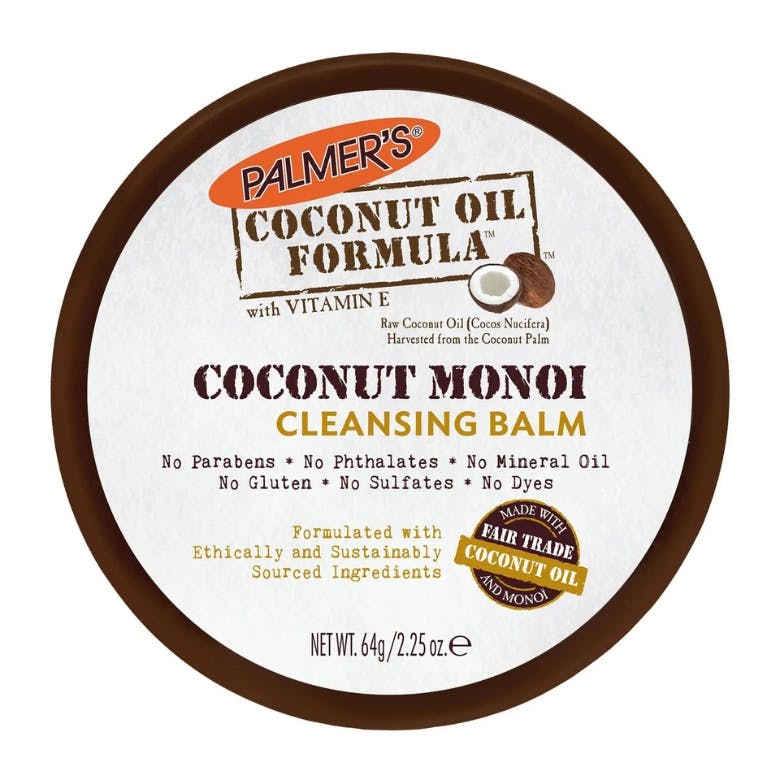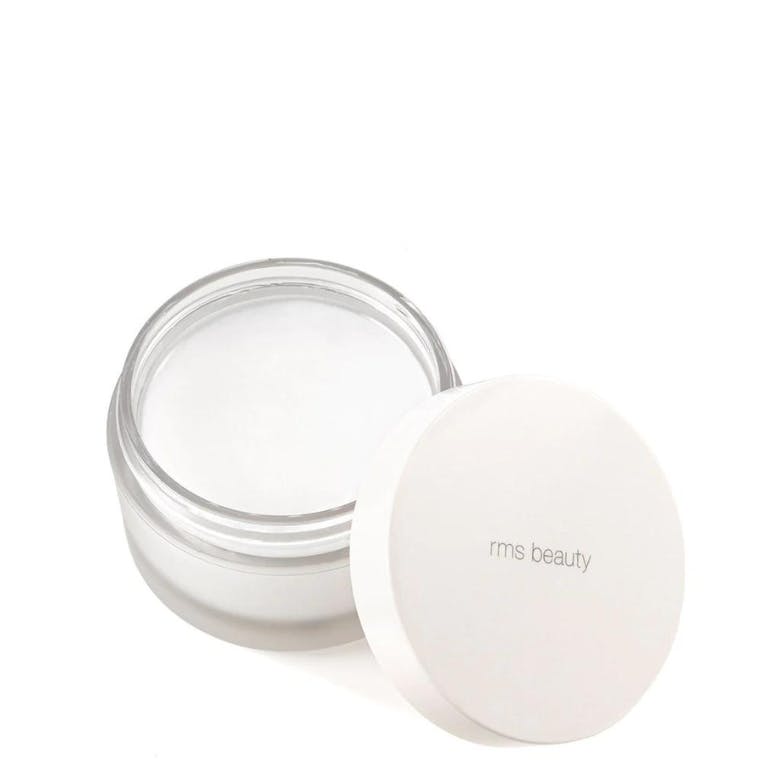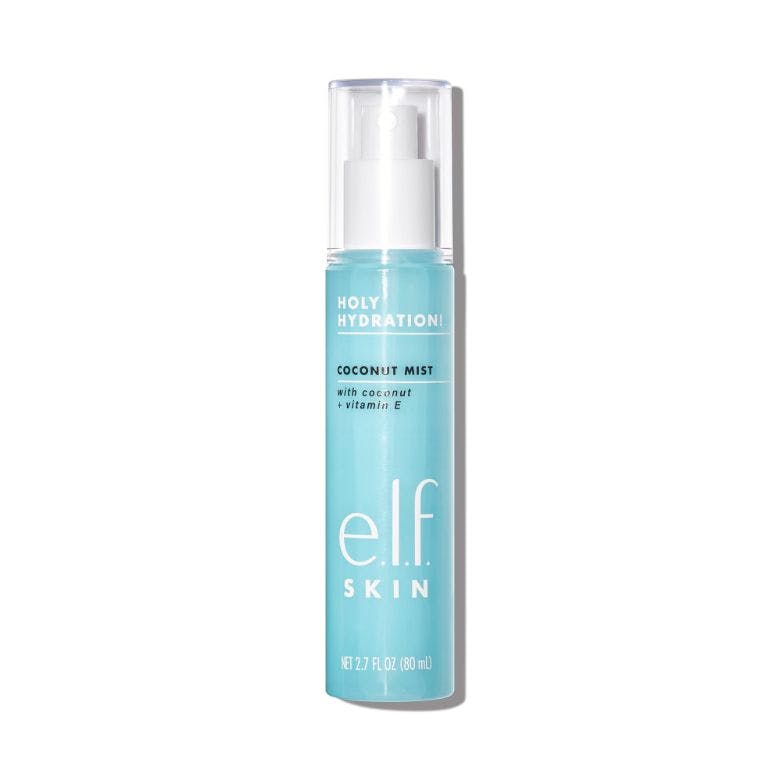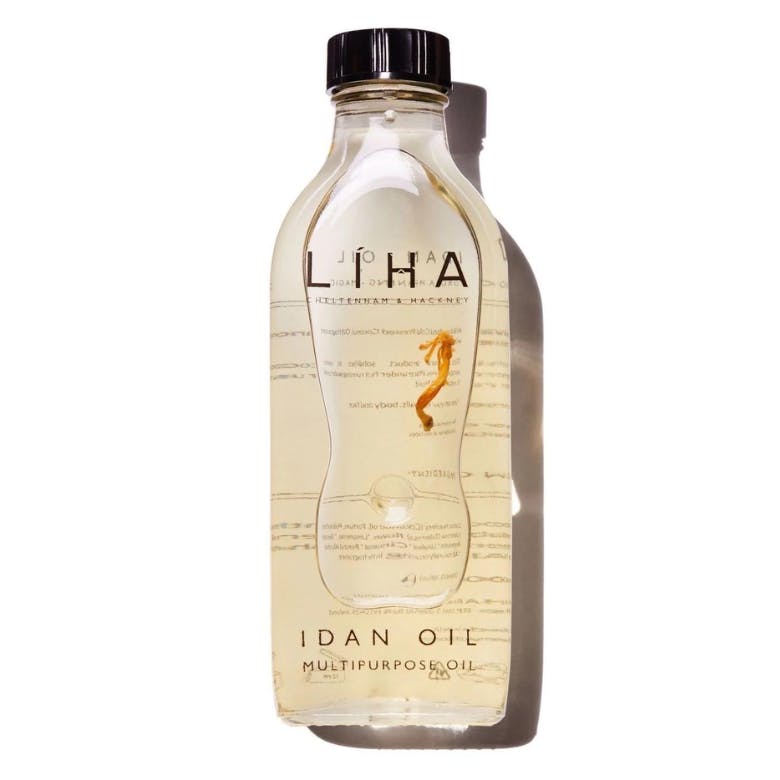Coconut Oil For Skin – The Best Uses For Face & Body
6 minutes read
Using coconut oil for skin is becoming increasingly popular. Most people know about the wonders of coconut for our health – for example supporting weight loss, increasing hydration and a being a great source of vitamins – but did you know that it can also be beneficial for skin and hair? “Coconut oil might just be the most versatile thing nature gives us,” says Nicola Jones, Face Junkie “It’s great for skincare, cleansing, cooking, for your hair – you can use it for pretty much anything,” she adds. Want to know how to incorporate coconut oil into your beauty regime for maximum benefit? Here’s how, and why you should.
Coconut oil benefits
Locking in moisture
“Coconut oil is a humectant, which helps to trap moisture in the skin (and hair), contributing to a reduction in water loss and improvement in condition and suppleness,” says Jennifer Hersch Dip.Hort.Kew, otherwise known as the ‘Beauty Botanist’. Skin needs moisture for it to function properly, so using products that help to lock it in are crucial for the skin’s health.
Reducing inflammation
Coconut acts as a natural anti-inflammatory, thanks to its naturally soothing properties. It also helps to ensure that critical hydration and actives are held on and in the skin wherever they are needed.
Providing essential fatty acids
“Fatty acids have so many benefits for the skin, and coconut oil is full of them. Included in this is lauric acid, which is one of the best acids to help control acne-causing bacteria and reduce redness left over from any previous acne,” explains Nicola. “By reducing this type of redness, it really helps to create a porcelain finish to the skin,” she adds.
Strengthening your skin barrier
“Lightweight in texture, coconut oil is rich in the same saturated fatty acids that help to make up the skin’s cells,” Hersch adds. “One of the ways in which saturated fatty acids work within the skin is to keep its protective layer strong and supple – helping to soothe and smooth – which enhances the skin’s natural barrier capacity and activity,” she continues.
Best coconut oil for skin
Coconut oil for oily skin
Before using coconut oil on oily skin, there are some factors to consider. “Coconut oil is comedogenic, which means it may not always be best suited to oily skin which is more likely to be impacted by comedogenicity,” Hersh says. “The comedogenicity of plant oils (and other ingredients) – in other words their propensity for clogging pores – is measured on a scale from zero to five. Ingredients that are two and below are considered non-comedogenic. Coconut oil scores a four,” she continues.
However, a study published in the Journal of the American Academy of Dermatology concluded that just because a product contains ingredients that are comedogenic, it doesn’t necessarily mean that the product is. That’s because comedogenicity scores are tested on the ingredient alone. Diluted in a blend that makes up a product, the score may be much lower, meaning there are some coconut oil-infused products that are gentle enough for oilier skin types.
Palmer’s, Coconut Monoi Cleansing Balm, £7.49

A rich, luxurious cleansing balm formulated with sustainably sourced ingredients. It’s also hypoallergenic and non-comedogenic, meaning it won’t clog pores and is suitable for sensitive skin.
RMS Beauty, Raw Coconut Cream, £22

A cleanser, moisturiser and makeup remover – all in one! Formulated with 100% organic coconut oil, this sensitive skin-friendly wonder nourishes, quenches and soothes skin.
Coconut oil for dry skin
Coconut oil is amazing for dry skin due to its naturally hydrating properties. Here are some of the best skincare products enriched with coconutty goodness for dry skin.
e.l.f, Hydrating Coconut Mist, £8.00

Brimming with vitamins and coconut oil, this refreshing mist works to soothe, balance and freshen up skin for a brighter complexion.
Liha, Idan Oil, £42.00

A super luxurious skin-quenching coconut-based moisturiser that’s perfect if you prefer an oil over a cream.
Coconut oil for skin infection
According to a study in the Natural Medicine Journal, coconut oil can have antimicrobial and antifungal effects – which means it may be helpful in treating skin infections. Coconut oil contains fatty acids such as lauric acid and capric acid, both of which work to disrupt bacterial, fungal and viral cells – which could help cause cell death.
How to use coconut oil for the skin
If you have particularly dry skin and want to use coconut oil as a moisturiser, here’s an effective routine you can follow:
1. Apply to moist skin
After cleansing, make sure that your skin is just moist. You don’t want to apply coconut oil to totally wet skin as this will reduce its efficacy.
2. Rub together in your palms
As coconut oil tends to be solid, you’ll need to melt it with your fingertips to make the consistency thinner and more moisturiser-like.
3. Use a thin layer
Apply a very thin layer to the skin and apply it in a circular motion until it has absorbed into the skin.
FAQs
Can I mix almond oil with coconut oil?
Almond oil works well when mixed with coconut oil, as it works as a ‘carrier oil’ to aid deeper penetration into the skin.
Can you mix aloe vera and coconut oil?
It is possible to mix aloe vera with coconut oil, as they both work to hydrate and soothe the skin.
How long does it take for coconut oil to absorb into the skin?
Once applied, coconut oil should take about 10 minutes to absorb into the skin completely.
Is 100% pure coconut oil good for the skin?
“As with any ingredient, it’s all about using quality ingredients in the right amount in the right way to achieve the best result,” Hersh explains. “Coconut is widely used, so it’s no surprise that it can be the subject of occasional debate, for example around sensitivity and comedogenicity,” she continues.
“Coconut oil, acids and extracts are used widely across a whole range of personal care products, appearing as more than 25 different ingredients with distinct names in the listings on the back of packs.”
“For the majority of us, this is great news. Coconut ingredients are sustainable, renewable, and a great source of active chemistry that delivers tremendous benefits and enables the creation of highly natural performance products. In fact, the Cosmetic Ingredient Review (CIR), an impartial scientific body that looks at the safety of ingredients, has safety assessed the whole spectrum of coconut-derived ingredients and found them to be safe.
However, as with any ingredient, a very small minority of people can have a sensitivity to coconut. These sensitivities tend to be associated with proteins, and therefore are more likely to occur with ingredients based on extracts rather than coconut oil, which doesn’t contain protein.
Next Read: How to Exfoliate your Face Whatever your Skin Type
Sign up for our newsletter
We will keep you in the loop for special offers, exclusive gifts and product news.

